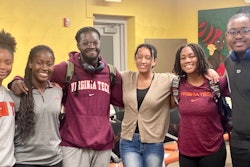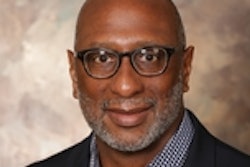Even though the landscape of diversity, equity, and inclusion (DEI) in higher education may have changed over the last three years, institutional and academic search firms say their commitment to identifying leaders, staff, and faculty who embody the essence of DEI work remains strong.
 Dr. Ericka Miller
Dr. Ericka Miller
So far, 22 states have introduced legislation targeting DEI initiatives and institutional practices. Earlier this year, Republican Gov. Ron DeSantis of Florida signed bills that prohibit public institutions in the state from using state funding to promote, support, or maintain their DEI programming and restrict the use of DEI terminology in hiring.
In Texas, Republican Gov. Greg Abbott signed similar bills that have already muddied the landscape for DEI programming and hiring. In February, Texas Tech University came under fire from the National Association of Scholars after the conservative education organization discovered the university’s biology department would evaluate potential faculty on how well they promoted DEI on campus. The university has since issued a statement that said it will remove DEI from any evaluation rubric in all departments.
While many of the keywords in DEI are now outlawed from inclusion in job hunts, experts behind the job searches for administrators, staff, and faculty in higher education across these states and more say that diversity remains at the core of the work they do despite the legislative efforts or the decision by the U.S. Supreme Court to outlaw affirmative action. They say that, ultimately, the academic search process, working in full legal compliance with institutions, will continue to serve higher education through a dedication to the diverse array of students present at universities today and tomorrow.
“Where I draw hope that we can reach common ground is on behalf of students, because that’s what we’re talking about here: serving students well. Inclusion, access, equity — these are all concepts that have, for the most part, universal appeal throughout the U.S.,” says Dr. Ericka Miller, president and CEO of Isaacson, Miller, a well-known search firm that helps higher education institutions connect with leadership candidates.
“Opening doors to young people, making education affordable for low and middle income or first-generation students, this is the common ground. Wherever you are on the political spectrum, there’s consensus that these are important goals,” says Miller. “So, stressing that common ground is a way for us to move forward productively and ensure that leaders who are well equipped to help institutions achieve these goals find themselves in these important positions.”






















